People who talk about games online sometimes like to talk about whether a given year was good or bad for games, and for a time 2019 seemed like it wasn't that great. There weren't a lot of big names in the fall and the few there were all seemed to get delayed. But by the end of the year, looking back, there were a lot of really good games that came out. The industry is as big as it's ever been. We'll see if anything from the new consoles makes my list next year.
Best of 2019
10. Ape Out (PC)

Ape Out's main story only lasts about an hour, but it's quite a delightful hour. Each section of the game is an "album", where you play a gorilla that breaks out of captivity and destroys the bodies of anyone who gets in its way as it runs for freedom while jazz drums go wild in the background. The music reacts to what's happening on screen, and that combined with the unique, bold visuals created a fantastic sense of style that is key to the whole game. The game is simple but fun as you mix and match a bit of strategic thinking with a healthy dose of aggression to get through each area. As the game stretches on it can get a little annoying when guys with flamethrowers and rockets are all out to get you, but like I said, you can finish it in an hour.
9. Fire Emblem: Three Houses (Switch)

Three Houses is the first console Fire Emblem game in 12 years, and Nintendo took the opportunity to expand the scope of the series. You're still commanding your small army on a tactical grid during the battles, but you're also spending time talking to the students you're teaching, choosing what they should study to improve as soldiers, and helping them develop their friendships with you and each other. It's also three or four games in once, since you can make multiple choices that determine which group of characters you spend the most time with and major directions the story can take. The story itself, about how a tenuous alliance between three major factions on the continent of Fódlan starts to crumble as their competing desires make the peace untenable, is probably the game's strongest asset, though there's plenty of tweaks to the combat to keep it different. The battles are fun, but it's really the characters that will keep you coming back to its lengthy campaign.
8. The Legend of Zelda: Link's Awakening (Switch)

Link's Awakening is the kind of remake that feels like the exact same game, but it's actually creating the idealized version of the original that exists inside your head. Besides the obvious graphical upgrade, the Switch version of the Game Boy classic has numerous improvements that don't really change the way the game plays, but makes the act of doing so simpler and more convenient. You have dedicated buttons for swinging your sword, raising your shield, and dashing, you can make notes on your map, and some annoying interface problems are fixed. Some of the later dungeons in the game have the same problems you may have had before, but if you want is a prettier, easier to play version of the same game, this is it. There's graphical stuttering in the outdoor areas that can be annoying, but if you can look past it, this is all you could want from a faithful remake.
7. Star Wars Jedi: Fallen Order (PC)

You can see Fallen Order as a synthesis of a lot of popular trends in modern action games. It has structural elements and the precise combat of a Souls game, modern traversal-style platforming, and Metroidvania exploration where your abilities are always expanding and unlocking previously blocked areas. Nothing about it is too surprising or innovative, but it's well put together and mostly fun to play. It also has an entertaining story, which explores the early period after the fall of the Republic which was shown in the prequels and does a decent job of fleshing out its handful of original characters. There are also some technical issues, but they also seem to be better than they were when the game launched a few months ago. I'd recommend it to anyone who likes video games and still has some affection for Star Wars.
6. The Outer Worlds (PC)

Obsidian returns to the first person shooter/role playing/immersive sim genre when The Outer Worlds, a relatively compact but deep game where you play a late arrival to a solar system-sized space colony that is going through a rough time. You can ally yourself with the mad scientist who freed you from stasis or the colonial government that has a bounty on his head, and you can focus on shooting your enemies, sneaking around them, or talking them into letting you in the door. The game is at its best when you have multiple ways to deal with a situation both politically and physically, and it's up to you which one seems the most interesting, or will cause the most or least pain for those involved, depending on your goals. It has pacing issues at times, and it leans a little heavily on the "you're the savior of the galaxy!" narrative, but I had a really good time flying around to different planets with my companions. It's like a video game version of Firefly.
5. Disco Elysium (PC)

Despite the simple gameplay and small size of the world you can explore, Disco is a big game with lots to dig into. You play a cop in a run down part of a city that was the site of a failed communist revolution decades earlier, with no memory of your life prior to waking up in the morning with a hangover and a murder you're supposed to solve. You proceed through the rest of the game principally by talking, asking people questions and responding to their responses. You have 24 different skills you can improve, half of which are entirely mental, and during conversations your skills have the chance of popping in and "talking" to you, giving you additional options which may or may not be useful. You can also "internalize" thoughts, which could give you benefits or penalties once you finish thinking about them. It's a game about small personal interactions as well as big political ideas, as you can get invested in the characters, the murder mystery, or the whole strange fictional world as you see fit. It's the kind of game where you want to play it again just to see how differently it can play out if you act like a different person.
4. Outer Wilds (PC)

Outer Wilds is a game about an explorer of a solar system, reliving the same cycle over and over again as they try to save their home from being wiped out by the sun going supernova. You have only a few tools with you as you drift around in your tiny spaceship, exploring strange and mysterious planets littered with odd natural phenomena as well as the ruins and writings of a civilization that came before you. You might want to know why you wake up where you started after dying, or what happened to that old civilization, or what you can do to break the cycle. At times the game is exciting, lonely, frustrating, terrifying, and awe inspiring. It's a unique game I would recommend to anyone who likes the feeling of being lost, of not being sure what to do, of finally finding an answer you weren't sure would ever be there.
3. Control (XBO)

Control is a third person shooter with psychic powers. That description ignores what makes the game special, which is its sense of style and densely entertaining story. It takes place entirely inside the headquarters of the Federal Bureau of Control, a mysterious government agency that locates and contains supernatural objects, objects which can cause events that disrupt a society that tries to pretend that nothing really weird ever happens. The headquarters building itself is as mysterious as any object inside, having existed long before the FBC was created and being invisible to anyone who doesn't know to look for it. If any of this sounds cool to you, you should check it out. The brutalist architecture and visual design of the building is cool, the shooting and powers are solidly fun, but the most fun I had with Control was just digging into the strange, funny, creepy history of the FBC.
2. Resident Evil 2 (PC)

Resident Evil 2 is the kind of remake that captures the feeling of playing a beloved old game without being slavish to the outdated design it may have been built on. It has a great balance between the obscure puzzles and atmospheric horror of the older games with the tense action of some of the later ones. It looks amazing, feels good to play, and features Mr. X, a relentless pursuer who will track you all over the place, his heavy footsteps finding your ear rooms or even a whole floor away, to the point that finding a way to defeat him, even temporarily, always brings a huge sense of relief. The story is still silly as shit, but would we really want anything else from Resident Evil? My one real complaint is that while the "A" and "B" scenarios that let you play both main characters are solid fun, they don't actually fit together on a story level, failing to create a cohesive final experience.
1. Sekiro: Shadows Die Twice (PC)

Sekiro has the bones of a Souls game, but the team at From Software have shifted from making RPGs with strong action elements to action games with RPG elements that at this point are only typical for the genre. That's not a knock, it's just funny how intertwined the two genres are at this point. What makes Sekiro different than other action games is that its action is just impeccably great. The stealth bits are fine, using your grappling hook to jump out of harm or cross dangerous gaps is fun, but the core of the game is you and your sword against the enemy. While it's common in games like this to avoid harm until you see a small opening to strike and then repeat the process, Sekiro is all about wearing down your foe's defenses until they're at your mercy. It's hard to describe but when you have learned enough about the enemy to dispatch them without ever backing off or relenting, it feels sublime. It looks pretty, it's interesting to play a From game with a real active story, but Sekiro is my game of the year because the combat is just that damn good.
Delayed Entry
This is the best game that wasn't released in 2019 but I didn't play until then.
Return of the Obra Dinn (PC)
I knew I would like this before I played it, and I did. It's a game of deduction, where you have the ability to touch a corpse and see and hear the final moment of the person it used to be. If that moment itself contains a corpse, you can touch that and go farther down the rabbit hole. You use this ability to... determine the cause of death of the crew of a ship for tax purposes. You must use what you can see and hear along with the ship's manifest to reason out who each person is through logic and elimination. What someone sounds like, what they're wearing, and even the label on their hammock can help you figure out who they are. It's the kind of game that could easily become a series if the creator were less interested in being innovative every time they make something new. It also has a cool visual style and a wonderful soundtrack.
Monday, January 27, 2020
Best Games of 2019
Monday, January 11, 2016
Best Games of 2015
There's some big games that came out last fall that I wanted to play and didn't get a chance to. Still, there's a lot of great stuff on this list, including things you don't need to be a hardcore gamer to get into.
Best of 2015
10. Broken Age (Multi)
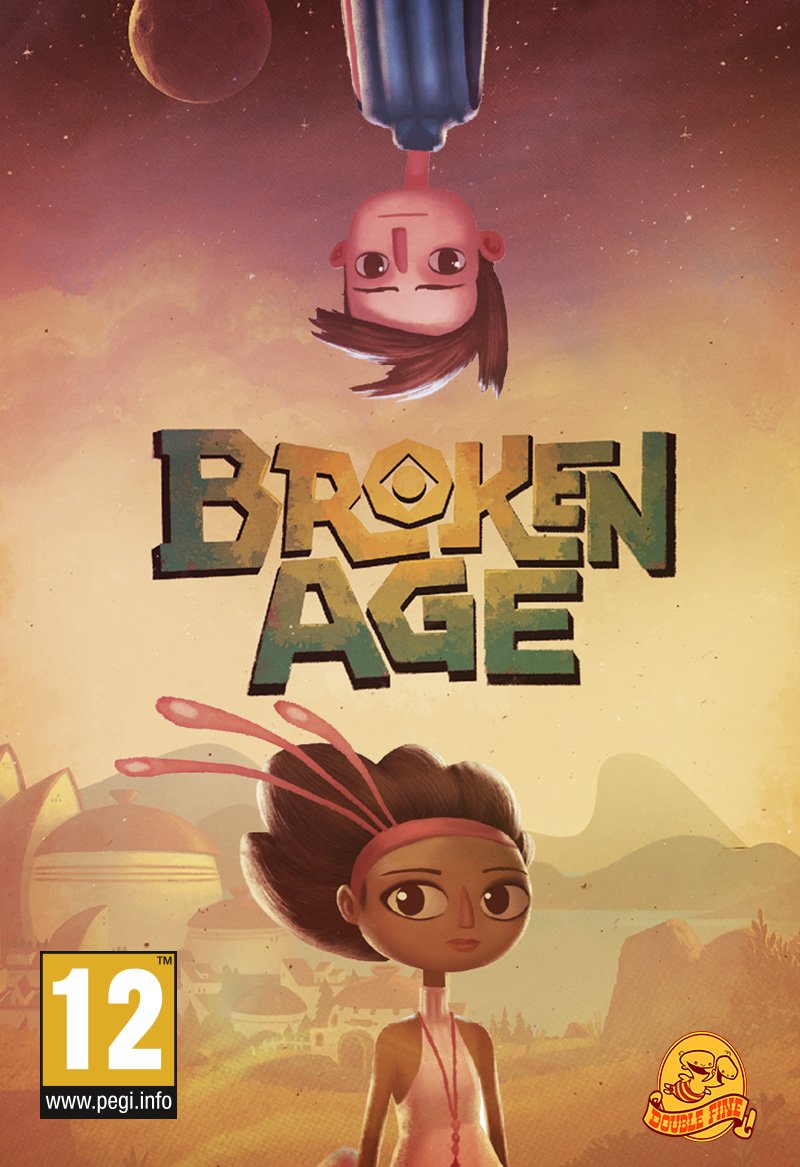
After all the controversy over its development (for the record, I think Tim Schafer probably mismanaged the scope of the project after the Kickstarter greatly exceeded its initial funding goal, but it would have been worse if he kept it the same and pocketed the extra money), Broken Age ended up being what was promised: a traditional point and click adventure game. The puzzles in the first half were maybe a bit too simple, and the ones in the second half probably skewed too far the other way, but what people really remember about these games are the characters and the world they inhabit, and I think the game succeeded there. It's funny and sweet, and I think I got what we paid for.
9. Her Story (Multi)
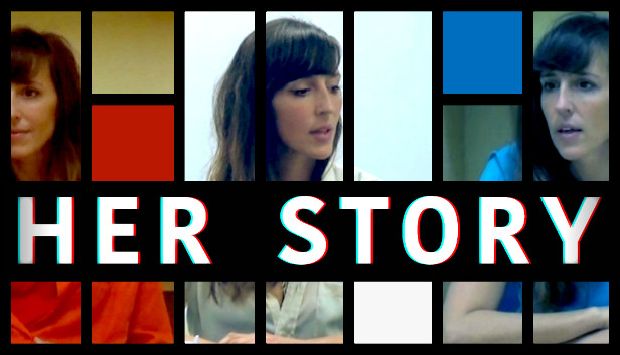
Her Story is both very different from other video games and very much a video game. In the game, you have access to a database of videos taken from a series of interviews of one woman from a murder investigation in 1994, split into chunks of anywhere from 2 seconds to a couple minutes, and viewable by searching for words spoken in the clips, with only the first five chronologically available at one time. Ignoring that the system only makes sense as a way to obscure important information, the game effectively gives you the experience of investigating the murder yourself, watching the videos, picking up on key phrases, and finding a way to get to the meaty truths hidden in the final interview. The actual plot can be interpreted multiple ways, all of which are wackier than you might initially suspect, but the feeling of piecing things together is unique and rewarding. I played it by myself, but I can see it being fun with a group as well.
8. The Beginner's Guide (PC)

This works very well as a companion to Davey Wreden's first game, The Stanley Parable. While that was about playing games, Guide is about making them, although it's broad enough to apply to any kind of creative endeavor. It lacks the humor and playfulness of Parable, taking a more introspective approach, but it still keeps you intrigued for its duration as it plays with your expectations and dives into the insecurities and worries that a lot of people deal with. If you hate games where you do nothing but walk around, you'll want to avoid it, but I think a lot of people who don't play many games could enjoy it more than they'd expect.
7. Lara Croft Go (Multi)

Last year Square Enix put out Hitman Go, a clever phone game that translated the core concepts of the Hitman series into a turn-based game on a grid. Lara Croft Go does the same thing with Tomb Raider, but to much greater effect. The puzzles (until the bonus levels after the normal ending) are in the perfect range between tough enough to make you feel smart and easy enough that you never get stumped for too long. The visual style is neat, and the hidden objects you can find to unlock new costumes are a nice extra brain tickler to keep you focused. I played it enough to where I was seeing the game all around me when I wasn't playing it, which always annoys me, but it's hard to get mad at the game for that.
6. Axiom Verge (Multi)

I played Super Metroid last year, finally learning why it's always brought up in best-game-of-all-time discussions and seeing how it influenced so many exploration-focused action platformers over the years. Axiom Verge is very obviously heavily influenced by that game, but luckily avoids copying it too heavily, coming up with its own ideas for weapons and tools so the gameplay at least always feels distinct. The retro-styled visuals and music compliment each other nicely, and while I didn't get a whole lot out of the sci-fi story, it did a decent job of tying the whole experience together into a cohesive whole. DEMON, ATHETOS SAY, KILL
5. Rise of the Tomb Raider (XBO)
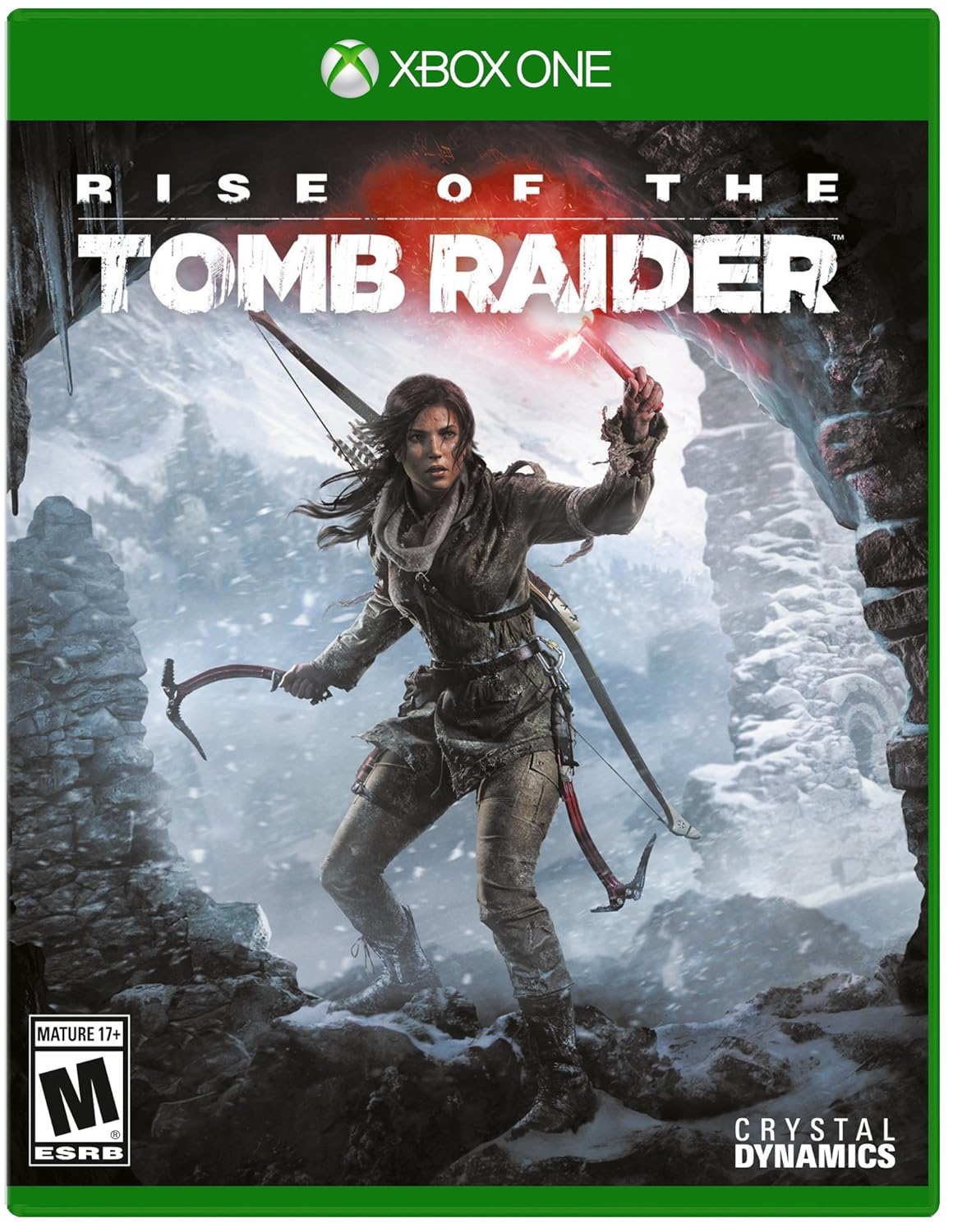
I haven't actually finished this game yet, but I feel confident in placing it here. As a follow-up to the reboot from a couple years ago, it expands on what people really liked, the exploration and survival aspects, and pulls back a bit on the combat, which I actually enjoyed, but I always welcome the shift in focus. The story works well enough to pull you into its world and justify why Lara puts herself into another dangerous situation, and the structure of the game lets you play it at your own place. I'm really enjoying finding and clearing the optional tombs, upgrading my gear, and finding all the little bits of history scattered around. Also the game is extremely gorgeous, which is always nice.
4. Undertale (PC)

Undertale is an old-school RPG for the Tumblr crowd, and if that's a turn-off for you, I understand. I still thought it was one of the best narrative experiences in games last year. The gameplay is pretty basic, as you solve simple puzzles and engage in a combat system which never gets terribly deep but lets you talk with your foes and let them go instead of just whacking them to death. The game parts are functional enough to get you to the story, where Undertale shines. It's a genuinely funny game, and it uses humor to get you to like its characters. It then uses your affection for the characters to build to a couple conclusions which are much more emotionally effective than they would be otherwise. I recommend playing through without killing anyone, and then loading your save and getting the pacifist ending, as both conclusions have their own things to say, their own surprises, and their own memorable moments. If you want to go back for the genocide ending after that, that's on you.
3. Metal Gear Solid V: The Phantom Pain (Multi)
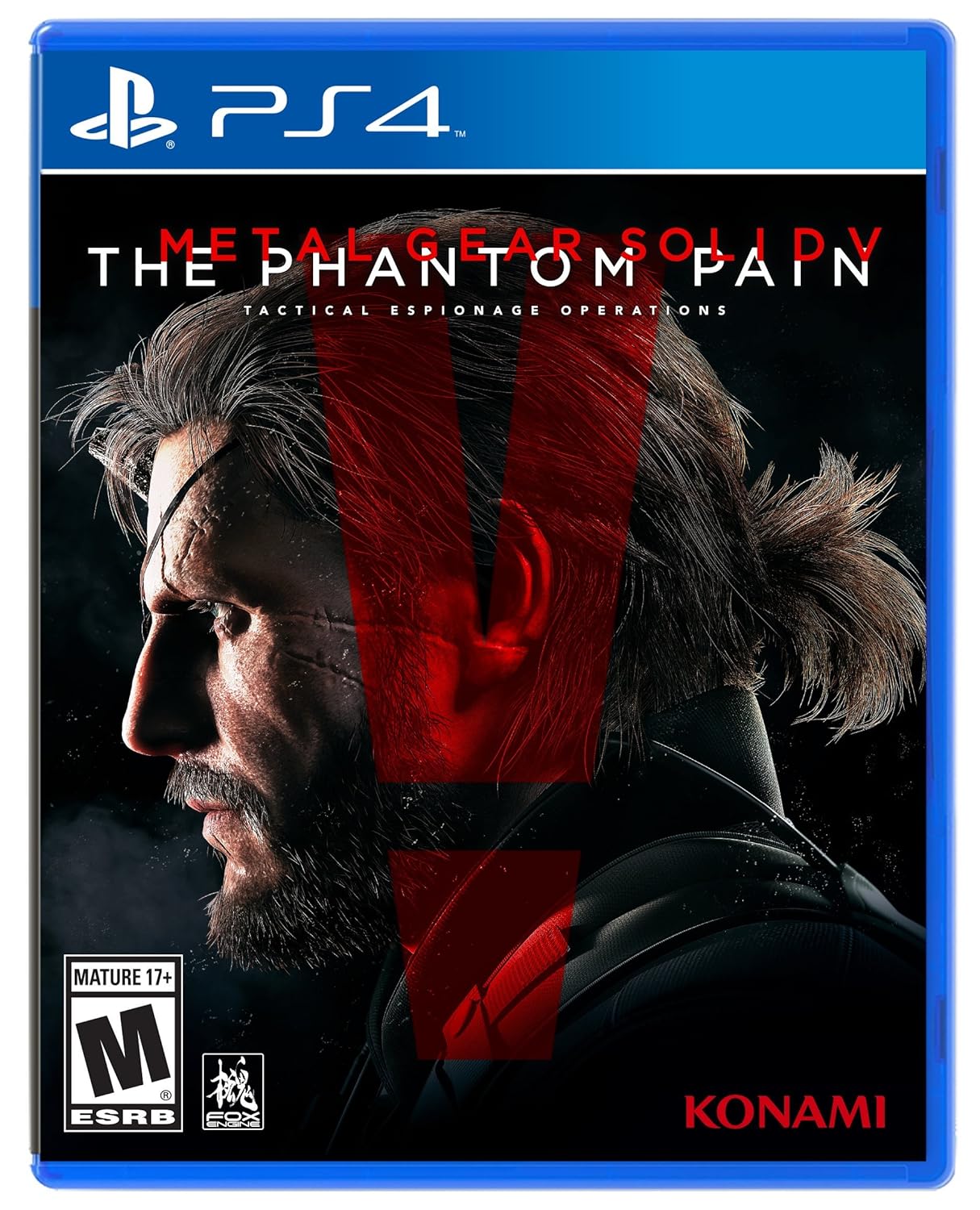
As a Metal Gear game in general, and specifically as Hideo Kojima's farewell to the series he created, The Phantom Pain is a big disappointment in several ways. Luckily, actually playing the game itself is an incredible experience. Metal Gear has long had a reputation for being idiosyncratic and obscure, but by putting you in an open world, pulling back on the familiar distractions, and honing everything to near-perfection, Kojima and his team managed to craft perhaps the finest-playing stealth game ever made. The way all the systems work together with your different abilities and the complex, smart-but-not-too-smart AI of the enemies creates an endless supply of unique, memorable moments, whether you pull off the perfect, unseen approach and infiltration of an enemy base, or screw up and have to Rambo your way through. The different buddy characters provide an added layer of strategy and possibility, and the plethora of side-ops and optional objectives mean there's as much game as you want there to be. I could talk more about my complaints, but I'd rather focus on the positive: playing The Phantom Pain is awesome.
2. Bloodborne (PS4)
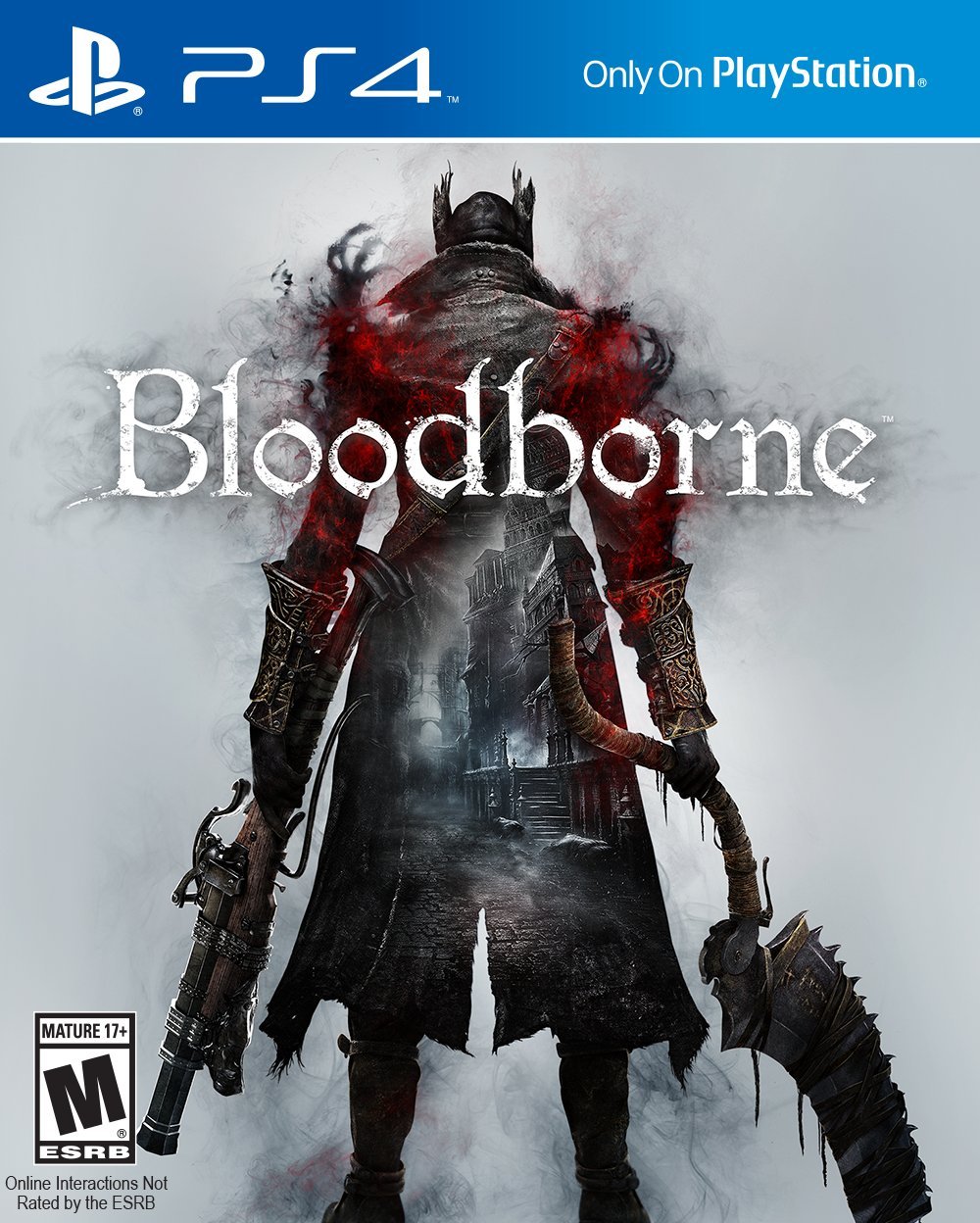
Compared to the Souls games, Bloodborne clearly has a more narrow focus. Shields aren't really a viable option, and neither are projectiles or magic. Having such a specific aesthetic, there isn't exactly a ton of environmental variation. If you love the Souls games because of the variety of possible character builds and far-ranging level design, I can understand disappointment in Bloodborne. If you focus on what Bloodborne is rather than what it isn't though, you can see how brilliant it is. The art direction is great, creating an incredible atmosphere, and finding enough possibilities within the space of "horrific Victorian hellscape" that you can tell all the different areas and their purposes within the world apart. The combat is fantastic, with a fun variety of exotic weapons, tough enemies, and a fast pace that keeps you on your toes and your heart racing. The story is vague but intriguing, with plenty of images you'll remember even if you don't exactly understand what they mean. As a variation on the classic Souls experience as I understand it, I think it's complimentary in a way that only makes the franchise richer.
1. The Witcher 3: Wild Hunt (Multi)

With The Witcher 3, I think CD Projekt Red's results finally met their ambitions. Taking place in a massive open world, there's more love and attention to detail per square mile than I think most games with similar scales even begin to approach. They've been building their setting and characters for three games, and the payoff seems pretty clear, as multiple storylines come to fruition and ultimately, satisfying conclusions. Much has been said about how good the side quests are, and I think that's extremely important. In a lot of games you can tell where the focus and attention went in the main story, and the rest of the game is just filler to make you think the experience was huge and meaty. But when every side job you find is at least fleshed out enough to fit your understanding of the world, and sometimes is as interesting as anything you'd see on the critical path in another game, you feel like the whole is greater than the sum of its parts. People have complaints about the combat, but I had enough fun with it to carry me through 90 of the most enjoyable hours I spent with games in 2015.
Delayed Entry
This is the best game that wasn't released in 2015 but I didn't play until then.
Dark Souls (Multi)
Months of prodding from a friend finally got me to buckle down and play Dark Souls, a game I was sure was great but that I would struggle to like. That turned out to not really be the case, as the solid-as-a-rock combat system, helpful online community, and wonderful, interconnected level design helped me get over the humps of significant difficulty, obscure systems, and the occasional loss of several thousand souls. There were a few many sub-par areas for me to praise it as truly one of the best games ever made, but I can certainly see why others feel that way. For me, being merely great ain't half bad.
Monday, January 12, 2015
Best Games of 2014
I own all three current generation video game consoles, and the one that had the best slate of games in 2014 was... the Wii U. Most people probably didn't expect that, but that's how things turned out. The PC was also a great place to play games, but if the only thing you have is a PS4 or an Xbox One, I honestly feel bad for you. Most of the games on this list were not exclusive to one platform, though, so everyone had plenty to play.
Best of 2014
10. Sunset Overdrive (XBO)

It's great to have the old Insomniac back. By my reckoning, this is their first good full length game with a real sense of fun since 2009. Overdrive's punk rock attitude doesn't always work, with some of the humor falling flat and feeling a bit out of date. On the other hand, we got a AAA game that involved such plot points as forging a magic sword in a nuclear reactor and throwing a concert to make some sick kids happy, so there's something to be said for just trying weird ideas out. The combat and weapon system doesn't work as well as the great Ratchet and Clank games, but the game looks and plays great, especially when you're usually the extremely fun traversal mechanics to make the whole city your playground. I liked this game a lot, and if they get to make a sequel, it could be truly great.
9. Captain Toad: Treasure Tracker (Wii U)
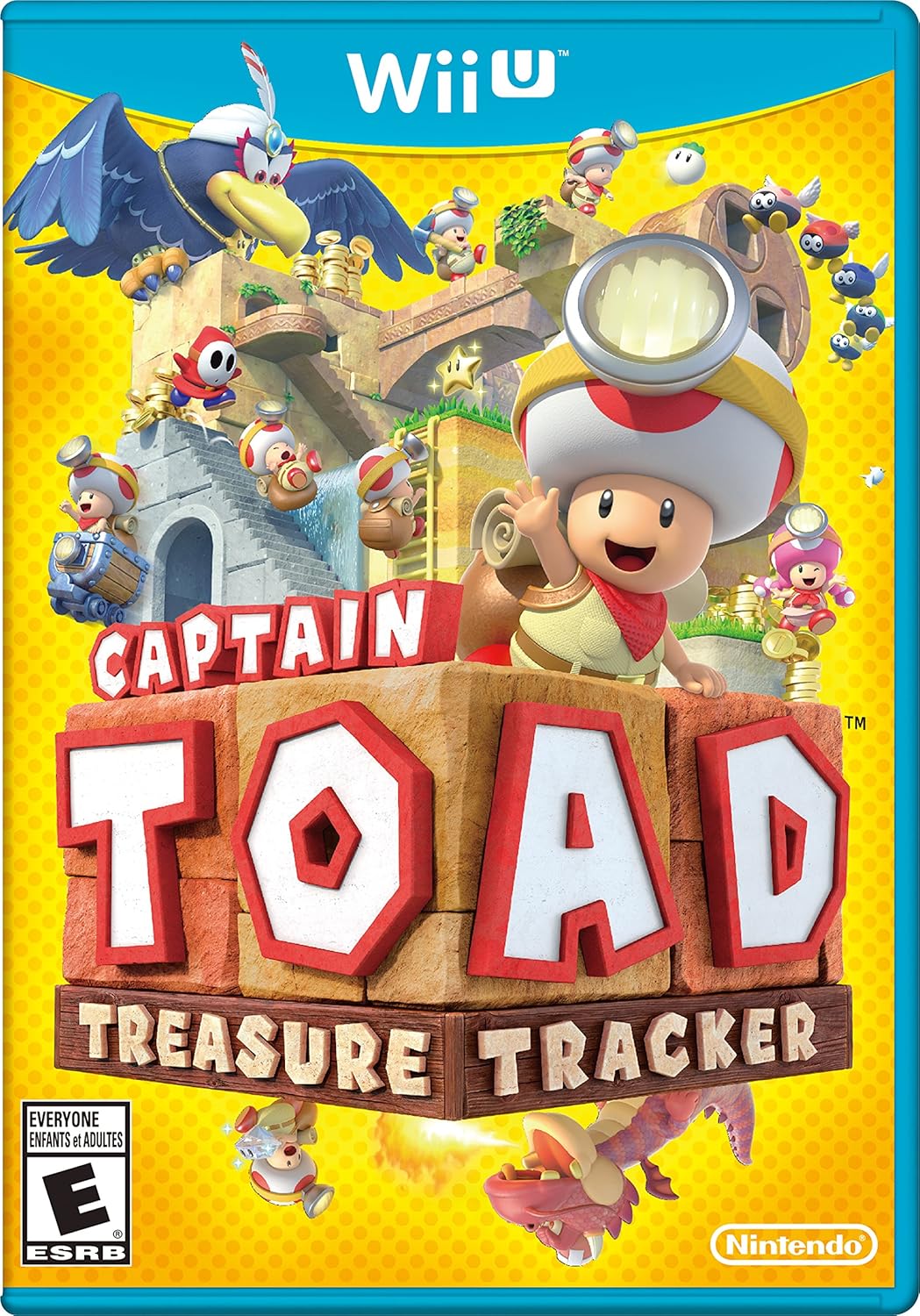
This spin-off of Super Mario 3D World takes the look and basic building blocks from last year's game and turns them from a party platformer into an adorable, often genius little puzzle game. Captain Toad can't jump or throw fireballs, but he uses his wits, some throwable items, and the ability to look at the world from any angle to solve dozens of small, inventive levels. I pursued the extra items more than I usually do in Nintendo games, because the fun of it is truly in exploring every nook and cranny to see what the designers managed to cook up. It's a bit light compared to some of the meatier experiences this year, but almost every moment is a pleasure.
8. Jazzpunk (PC)

If you played and enjoyed Blendo Games' oddball retro espionage adventures like Gravity Bone and Thirty Flights of Loving, you have an idea of whether you might like Jazzpunk. It doesn't have the narrative deftness of those games, but it does expand on the general idea while also stuffing every corner of every level with some truly bizarre and usually hilarious bit of comedy. Some of it's clever, some of it's referential, all of it is stranger than what you're used to seeing in video games. It's no surprise that this was published by Adult Swim. It doesn't have deep, satisfying gameplay, but the few hours it lasts are a comedic blast.
7. The Fall (Multi)

I usually don't include unfinished games on these lists, but I made an exception for The Fall. This is partly just because I'm not sure that subsequent episodes won't be released as separate titles, but also because despite it ending on a cliffhanger, it feels like a complete experience. You play as an AI controlling a space suit with a disabled pilot inside, your goal to get him medical assistance before time runs out. It has some simple yet effective combat and puzzle mechanics, but what makes The Fall really work is its dark (but not humorless) atmosphere and its story, where you have to subvert expected AI behavior in order to meet your goals, leading to some great cerebral questions about your priorities and some well executed twists. It's a few hours that will be hard to forget.
6. Wolfenstein: The New Order (Multi)
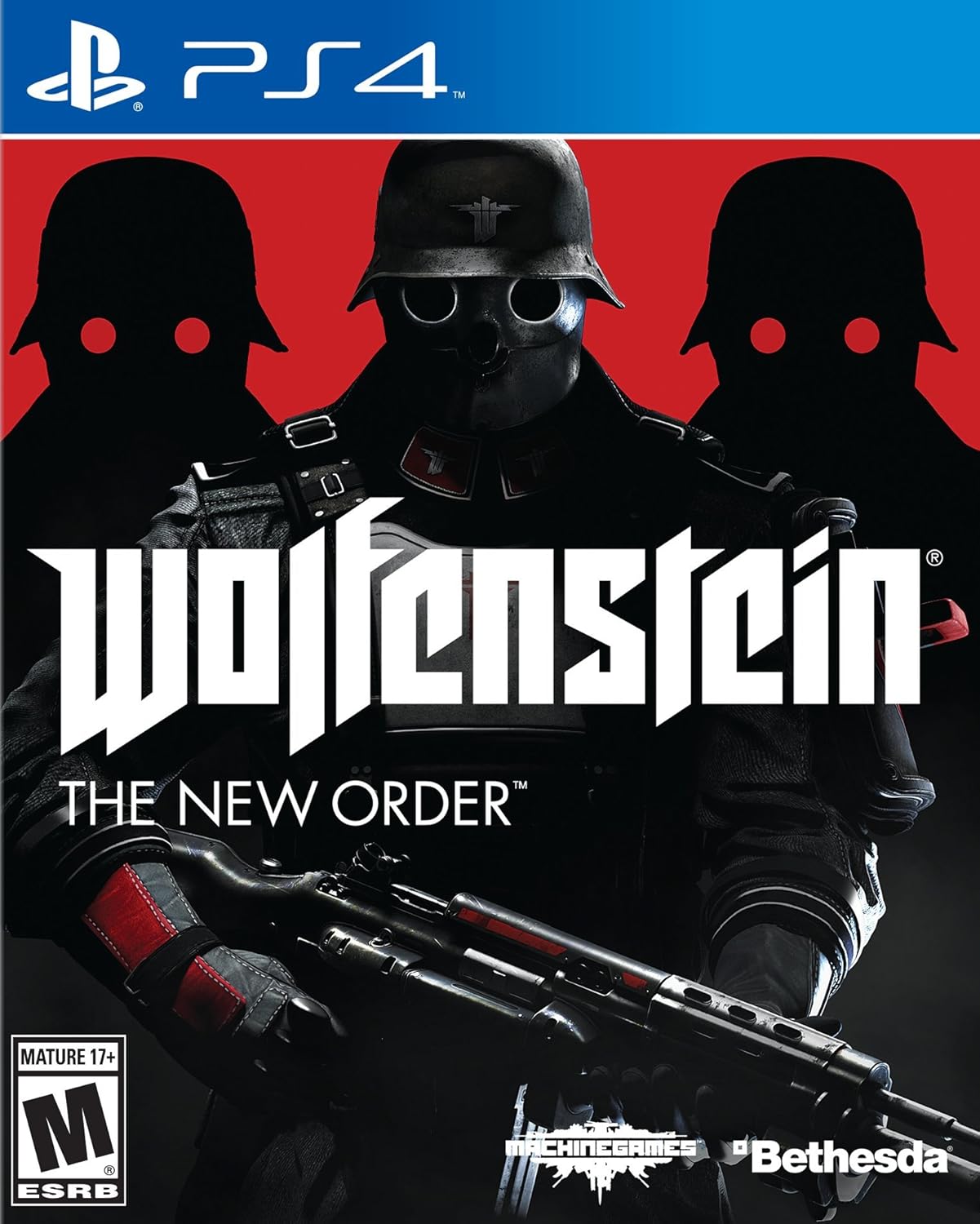
The New Order begins poorly with a boring opening sequence, but once you get past the scripted part and start the real game, you start to realize how much there actually is here. Lots of situations let you take a stealthy or guns-blazin' approach, and both are a ton of fun. Sneaking past guards, throwing knives, taking out commanders before they can radio for reinforcements is a blast. So is pulling out two of almost any gun in the game, from assault rifles to shotguns to even sniper rifles, and destroying everything that passes in front of your eyeballs. The story is also surprisingly good, with a fun alternate history setting, lots of well-executed moments, and human relationships you can actually believe in. MachineGames was founded by former Starbreeze developers, and they seem to have maintained their ability to create engaging, unique first person shooters.
5. South Park: The Stick of Truth (Multi)
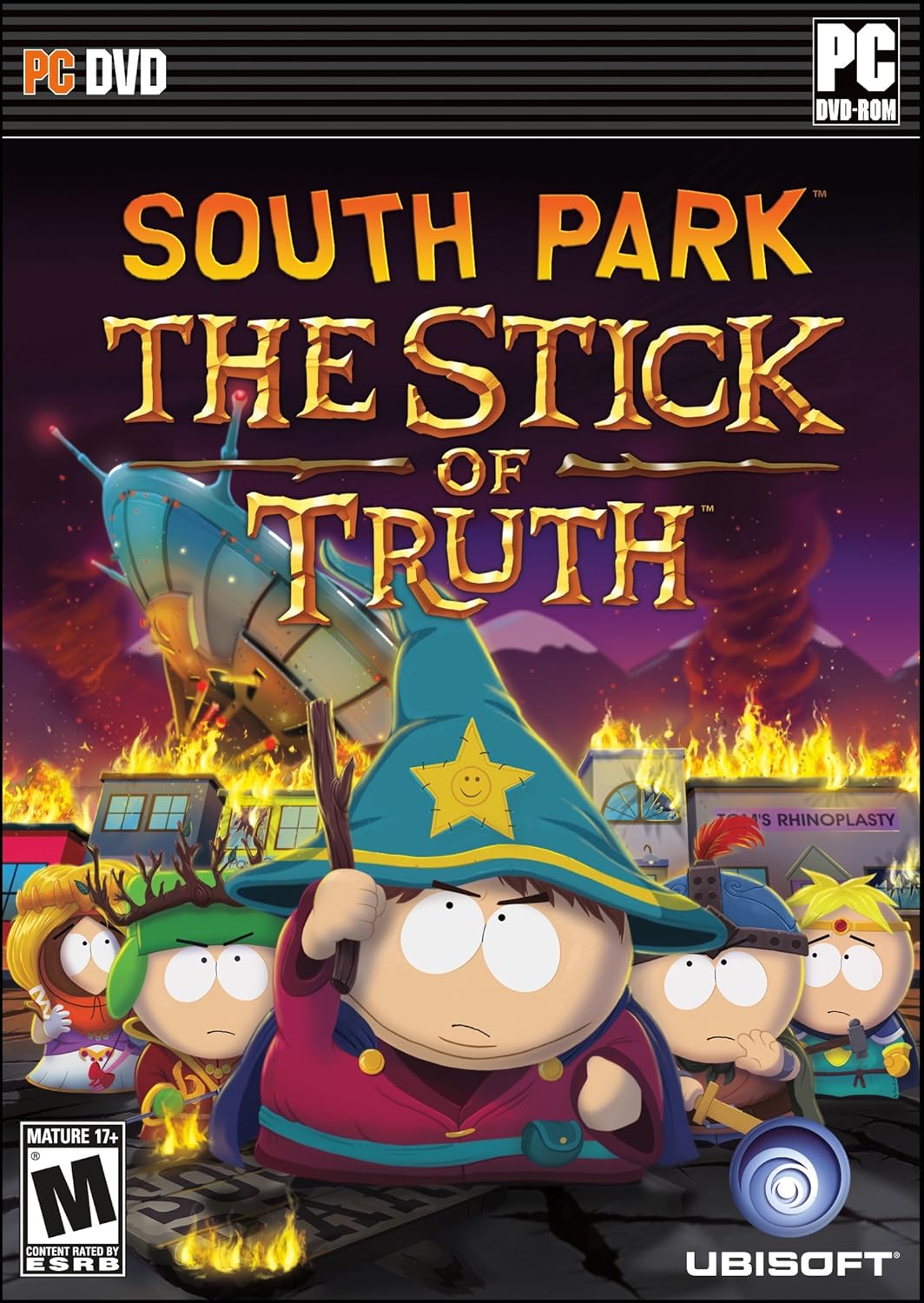
The Stick of Truth is the most I have enjoyed South Park since... let's say season 9, back in 2005. I still watch the show, but the video game captures its spirit perfectly, and provides more laughs, shocking moments, and flat-out charm than the show actually has in a long time. It expands on the show's idea of the town as an ersatz Middle-earth, and drops references to tons of great moments from the entire run of the series, without ever feeling like it's only dropping references to something you already like. It's also a light but mostly fun RPG, with an enjoyable battle system that holds up through the game's 15 hours, and tons of fun side missions and collectible items (which also always reference the show). The actual show this year didn't knock my socks off, but The Stick of Truth reminds me that Trey and Matt still have a ton of ideas left in them.
4. Shovel Knight (Multi)

As someone who doesn't actually have a lot of reverence for the action games of the 8-bit era (just a bit before my time), Shovel Knight had to earn my admiration by itself, but it did that handily. The closest analogue is definitely Mega Man, but the influences are obviously from all over the place in that period. You play as Shovel Knight, who must travel through dangerous lands, avoiding traps and monsters, in order to defeat the Enchantress, save the world, and get a ton of treasure in the meantime. The level design is smart and devious, the art and sound direction know when to shirk the strict limitations of the hardware they're paying homage to, and the many boss fights are always fun. I also have to mention that the story is surprisingly effective, conveying a grand sense of adventure and smaller human moments with some pretty basic text boxes and animations. The year's best new old game.
3. Middle-earth: Shadow of Mordor (Multi)
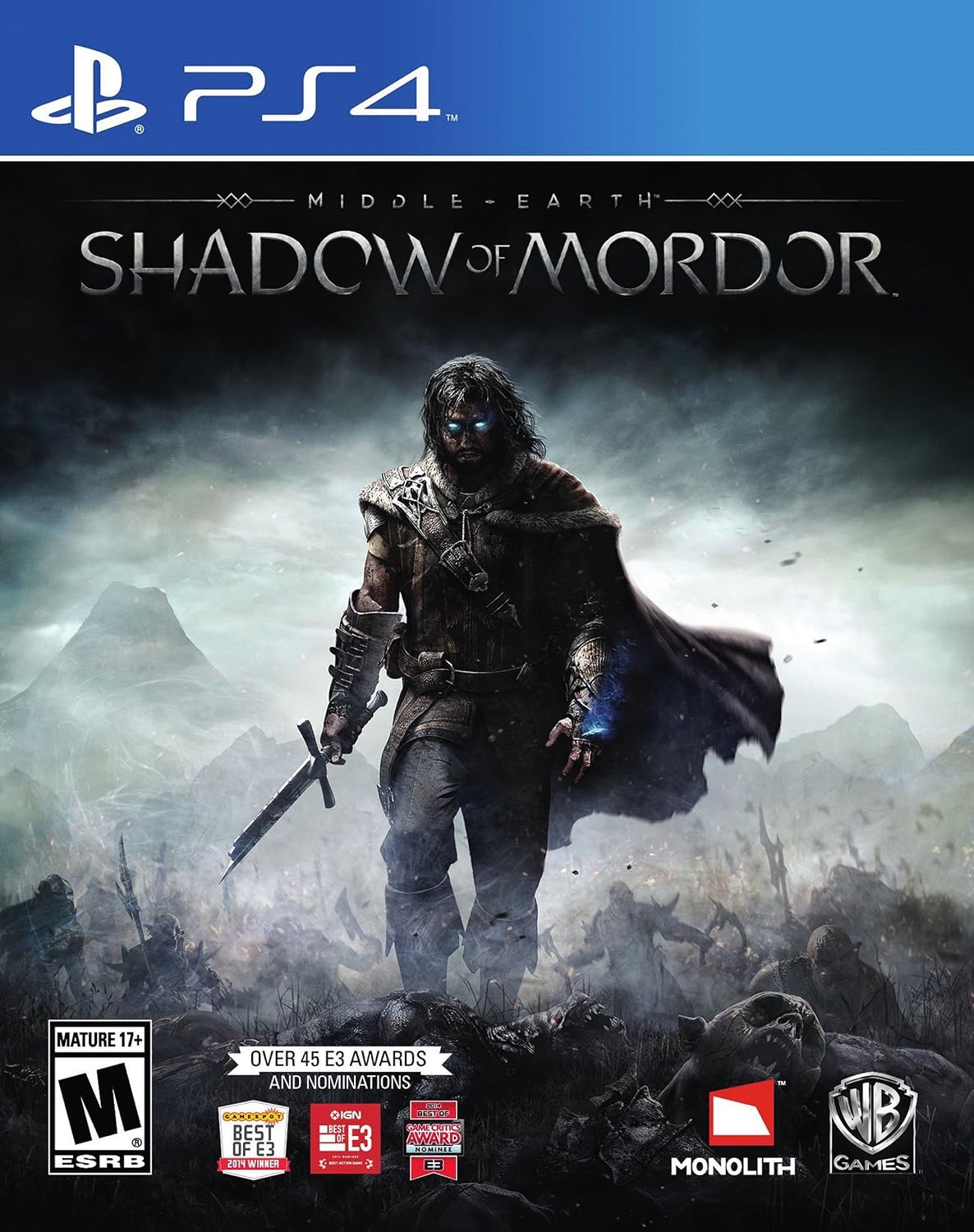
And this year's best adaptation of the work of J.R.R. Tolkien is not the latest (and probably last) big budget epic film by Peter Jackson, but an action game by a revitalized Monolith that combines what works from the recent Batman: Arkham and Assassin's Creed games and tosses out what doesn't. It takes place between the two Middle-earth stories we all know about, and has you playing a fallen ranger who is forcibly joined with an ancient elf spirit and let loose on the hordes of orcs roaming around Mordor. The story is pretty poor and best when ignored, but the game is pretty great. Sneaking around, group-based combat, and open world structure are all familiar, but also executed very well, and the nemesis system that everyone talks about is terrific. Any orc who manages to defeat you in battle is promoted into the command structure, which can be investigated, exploited, infiltrated, and ultimately defeated in your quest for revenge. It's a cool system that buoys an enjoyable game, and will hopefully be stolen and improved for years to come.
2. Valiant Hearts: The Great War (Multi)
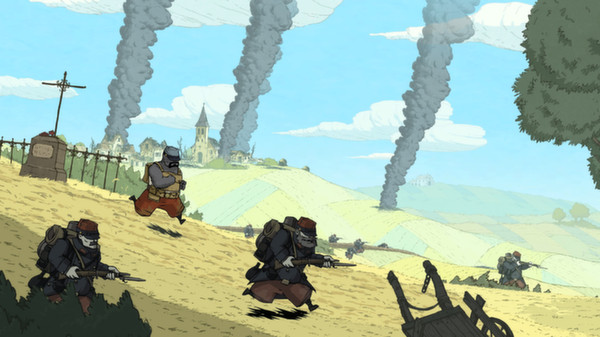
What's amazing about Valiant Hearts is that it presents a cute adventure story and depicts the horrors of one of history's most devastating wars without either really contradicting each other. The animated art style looks tremendous, and provides the basis for the gameplay, where you navigate battlefields and occupied villages, solving entertaining puzzles and doing what it takes to stay alive and see your family again. The game is packed with historical details that make it educational as well as entertaining, and the game also knows how to handle the weight of its setting, especially when you get to its brilliantly handled ending. There's also a cute, helpful dog in most of the levels that you can pet.
1. Bayonetta 2 (Wii U)

I liked the first Bayonetta, but I didn't love it. It was tough to find a good balance of challenge and agency in the combat. Bayonetta 2 nailed this for me though, and the result is one of my favorite pure action games in years. The core fighting mechanics feel great, the weapons are diverse and well balanced, and there's enough variety to easily carry you through the whole game and leave you wishing there was more. When it tried to explain the convoluted story I got bored, but the more immediate moments in the plot are more enjoyable and provide some incredible set-pieces, and I actually found myself emotionally affected by a specific point near the end. It's fantastic Nintendo was willing to do what it took to make sure this game saw release.
Delayed Entry
This is the best game that wasn't released in 2014 but I didn't play until then.
The Swapper (Multi)
I liked The Fall a lot, but it was actually only the second best existential sci fi side scrolling puzzle game I played in 2014. In The Swapper you are marooned on a mysterious space station, where you have to create clones of yourself and jump consciousness between them to solve puzzles, try to figure out what the hell is going on, and hopefully escape. So basically you win by killing yourself over and over. The very premise of the game is deeply unnerving to me. It's smart, moody, difficult in that great puzzle game way, and unforgettable.

































